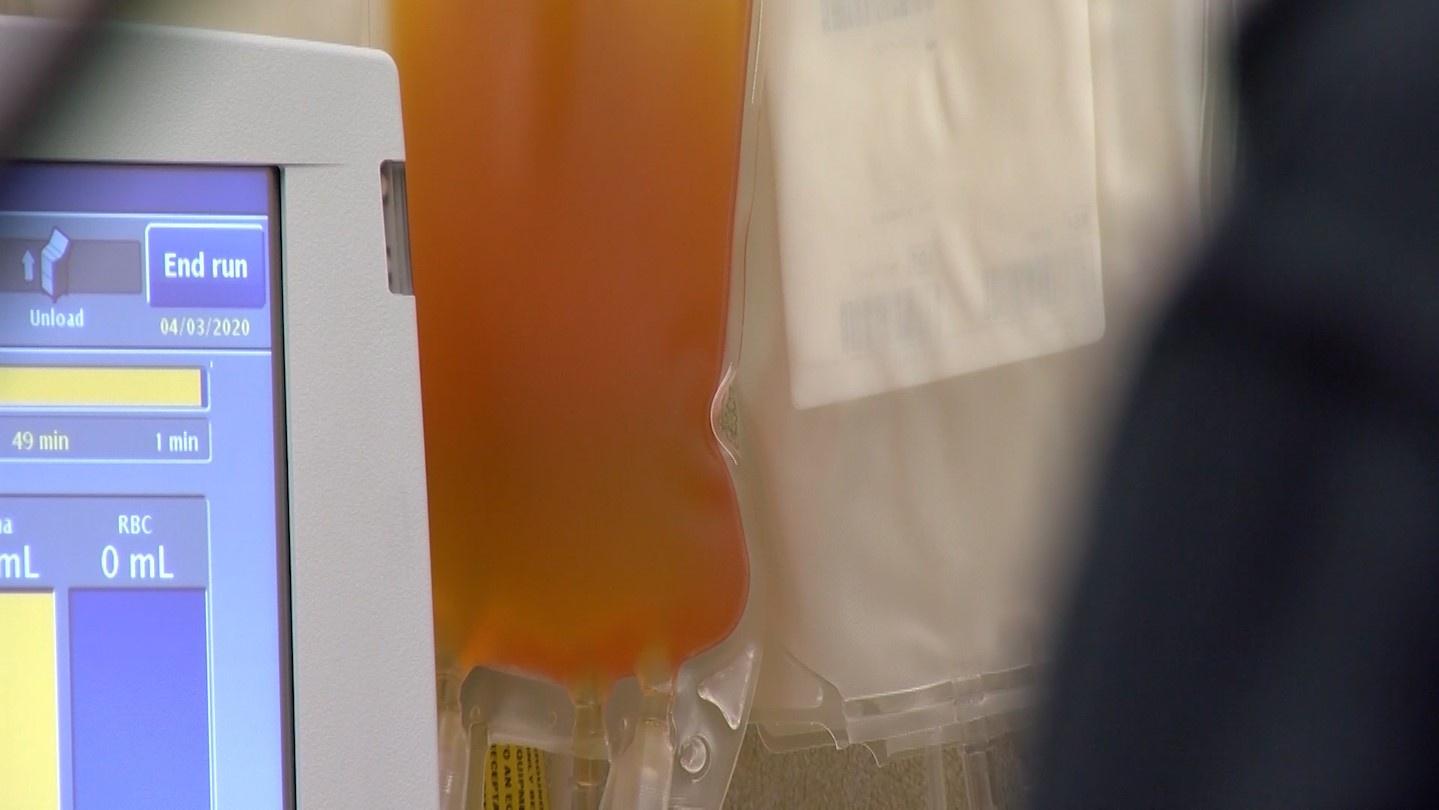BETHLEHEM PA - Plasma donations from those who have recovered from COVID-19 are helping medical professionals treat current patients. Former Pennsylvania Representative Charlie Dent is among the most recent elected officials to donate convalescent plasma after a bout with coronavirus. Today, blood centers across the country are calling on recovered patients to donate.
"Convalescent plasma is obtained from people who have recovered from a disease and we get it because we need the antibodies obtained in the product," explains Dr. Kip Kuttner, "We hope those antibodies will help the person who is infected, fight the infection."
Dr. Kuttner is Medical Director at Miller-Keystone Blood Center in Bethlehem. He says, as the pandemic continues, plasma is a useful tool to help boost current patients’ antibodies and could help stimulate recovery.
"We call this a novel coronavirus because it hasn't been seen before and we don’t have a whole lot of effective therapies for it," Kuttner tells PBS39 News Tonight Reporter, K.C. Lopez, "The first thing that somebody might try to do is called supportive care where they treat the symptoms of the person who has the infection but this virus, what it does is it attacks the lining of the lungs and when that starts to occur, people basically lose the ability to transfer the oxygen from the lungs into the blood and when that gets really bad they have to be placed on a ventilator. So people are looking for therapies that might be able to help people stay off of a ventilator."
Experts say while many people who test positive for the Coronavirus become seriously ill and eventually require the use of a ventilator, 80% of diagnosed cases do not. Those people recover and carry antibodies in their plasma. Currently, convalescent plasma treatment is experimental but doctors hope it is a lifeline for many of their most serious patients.
"It’s not approved by the FDA but it’s something that we have in our armetariam to try. And anecdotally, it seems to work in approximately 30% of cases," says Kuttner, "It’s being administered under a study. Originally, the study came out because we didn’t have much of an idea of how the virus is going to affect people; this therapy was approved only for the sickest individuals, those who were on a ventilator. But there are other studies now that are resulting in a relaxation of those criteria and now the goal is to prevent people from getting so sick that they have to be put on a ventilator. So, these criteria for administering the product are contained within research protocols; one of the largest in the country is being administered by the Mayo Clinic and that’s what most hospitals are participating in."
Dr. Micheal Joyner, is leading the Mayo Clinic’s program; coordinating a national online physician and patient registry to speed access and increase availability of experimental convalescent plasma for hospitalized patients in need. Hospitals in Berks County, St. Luke’s Warren campus and several under Lehigh Valley Health Network across the Lehigh Valley are participating in the “Expanded Access Program.”
"What we hope to do is use this product in a variety of patients in the hospital setting; ranging from people who are at risk of developing severe illness to those who are already in the ICU," explains Joyner, "And then begin to understand how this impacts their outcomes."




